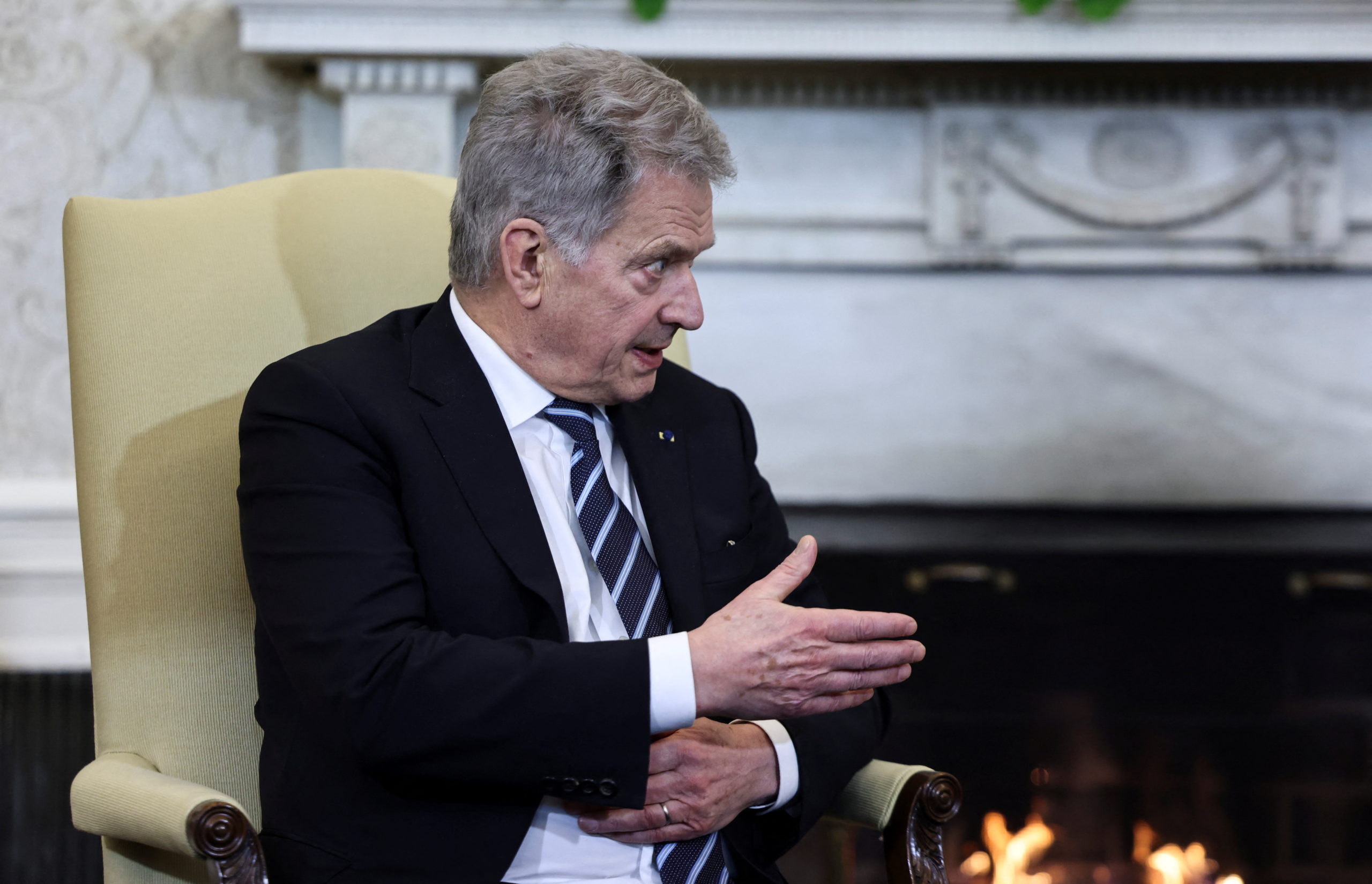Finland to review security policy as it mulls joining NATO
Support for joining NATO has grown in Finland since Russia's invasion of Ukraine.

HELSINKI — Finland is to review its security policy to decide whether to join NATO, President Sauli Niinisto said on Thursday.
The new review comes just 18 months after the government completed its last assessment, taking on more urgency since Russia’s invasion of Ukraine.
Many Finns have traditionally been wary of Russia, with which their Nordic country shares a 1,340-kilometer (830-mile) border and a history of two wars between 1939 and 1944 which cost Finland substantial territory.
But public backing for joining NATO, traditionally around only 20 percent, has grown over the past month.
[Finns warm to NATO in alarmed reaction to Russian invasion of Ukraine]
“When alternatives and risks have been analyzed, then it’s time for conclusions,” Niinisto told reporters, referring to the possibility of Finland joining the defense alliance.
“We have safe solutions also for our future. We must review them carefully. Not with delay, but carefully,” Niinisto said.
He declined to give a time frame for the process.
[Russian invasion of Ukraine forces Swedes to rethink NATO membership]
Niinisto met U.S. President Joe Biden in Washington last weekend and is due to hold a phone call with Russia’s President Vladimir Putin on Friday.
He declined to say what he would say to Putin, who calls Russia’s actions a special military operation to disarm its neighbor and dislodge leaders it calls neo-Nazis. Kyiv and its Western allies say this is a baseless pretext to invade a country of 44 million people.
Finnish authorities said separately on Thursday that Finland had stocked up its emergency reserves which it has kept since the wars, adding more supplies such as fuels and primary production goods to its reserves.
Additional reporting by Essi Lehto.